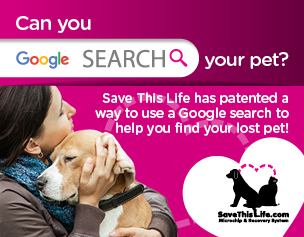Diabetes Prevention: Three tips for managing overweight pets
Speaking with your clients about pet nutrition and obesity can be a difficult conversation to navigate. When informed of their pet’s unhealthy lifestyle some clients may feel judged or ashamed. But with recent data from the Association for Pet Obesity Prevention1 showing that 59.5% of cats and 55% of dogs in the United States are classified as overweight or obese, it’s a topic that can’t be ignored.
To build trust while simultaneously improving the lives of pets with precursors to diabetes, take a three-step approach that includes prioritizing patient health outcomes, making an informed recommendation plan, and integrating these recommendations into a patient-monitoring care plan.
Step 1: Meet the challenging conversation head-on
When speaking with your client about their pet’s weight, a reassuring approach will set you up for productive dialogue. Here are a few tips to consider when leading an honest, empathetic conversation:
- Center conversation around patient longevity. Bring attention to the patient’s decreased quality of life and the high management costs associated with the pet’s weight.
- Choose words carefully. Convey positive, outcome-based thinking by avoiding negative terms like “obesity” and replacing it with active language using phrases like “healthy weight.”
- Establish a dialogue. Slow down. Take the time to show your emotional investment in your client’s pet by asking open-ended questions like “walk me through your cat’s daily schedule” instead of interrogative-style questions such as “what food do you feed your dog?”
- Acknowledge the challenge. Communicate genuine concern and practice active listening to help clients feel seen and understood.
- Empower your client. Teach clients how to evaluate their pet’s condition and progress so they can be equipped with the tools necessary to monitor their pet’s health appropriately.
Step 2: Co-create an achievable plan
Today’s economic environment has made clients increasingly cost conscious. With this reality in mind, it is important to offer a wide range of solutions. While every treatment plan should be unique to the individual client’s needs, here are some general strategies that can lay the foundation for a successful recommendation:
- Increase movement. Encourage clients to get dogs outside, away from the sedentary lifestyle that comes with being in the house all day. For cats, suggest active play periods.
- Establish an eating schedule. Instead of leaving food out throughout the day, control intake by encouraging your clients to feed their pets limited portions at scheduled times.
- Prescribe a specific diet and medications. Recommendations differ for overweight cats and dogs however, in general, lower-calorie rations should be implemented to slow the progression toward insulin resistance in overweight pets.
Step 3: Integrate into a patient monitoring care plan
Pet obesity is a complex condition that requires ongoing treatment and care. For your client to accomplish their goal of improving the life of their pet, try to make their task as easy as possible. Here are a few tips to ensure your client is set up for success:
- Recommend enrollment in a diabetes care plan. As a chronic illness, diabetes can be a long-term challenge and participation in a diabetes care plan can make it less daunting for pet parents and owners. Covetrus® Care Plans is a technology platform combined with professional services that simplifies the management of a wellness program customized to deliver your preferred treatment protocols.
- Leverage a Prescription Management Solution. Prevention and treatment recommendations should be easy for the client to access and for the veterinarian to monitor. Covetrus Prescription Management provides access to more than 20,000 popular pet products, including veterinary diets, through your very own branded online pharmacy and automatically syncs all purchases back into your patient’s medical record.
- Follow up every few weeks. See how they are doing. In between scheduled follow-up appointments, check in to see whether they weighing their pet and tracking progress? Is their pet’s body language and energy levels improving?
Talk to your account manager today for guidance on how Covetrus products, technologies, and services can support you and your practice in helping meet the needs of your client’s pets with obesity and/or diabetes.
1. Association for Pet Obesity Prevention, 2021 Surveys & Data. https://petobesityprevention.org/2021 Accessed online October 6, 2022.


Working Here
Our team members are encouraged to be the best they can be... at Covetrus we believe we impact one another.
Learn MoreNews & Events
FDA Cautions Pet Owners Not to Feed Texas Tripe Inc. Raw Pet Food Due to Salmonella, Listeria Monocytogenes
The U.S. Food and Drug Administration is cautioning pet owners not to feed their pets any of the Texas Tripe brand raw frozen pet food listed below because several samples of Texas Tripe raw pet food have tested positive for Salmonella and/or L. mono.
Careers
Are you looking for a place to let your talents shine? At Covetrus, we help our practitioner customers better serve their patients and take pride in providing the best customer experience possible. Search our open positions to see our available opportunities.
Newsletter
Stay current with what’s going on with Covetrus, subscribe to receive our newsletter and email communications. Subscribers will receive the latest information in practice management, sales and marketing, animal health, and more.



-3-(1).png?sfvrsn=2d806d73_0)

Leave a comment